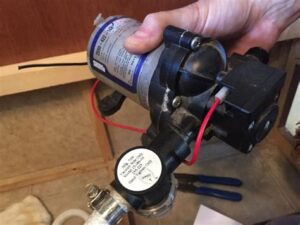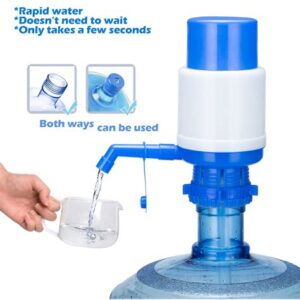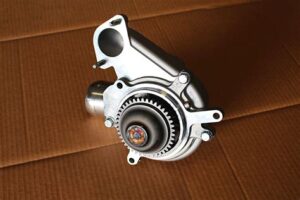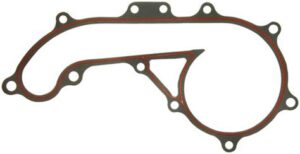boat fresh water pump, Discover essential insights on boat fresh water pumps, from maintenance tips to signs of replacement and enhancing onboard comfort. Choose the right pump for your needs!Embarking on a maritime adventure is an exhilarating experience, and having the right equipment on board is essential for an enjoyable journey. One such indispensable component is a boat fresh water pump, designed to deliver a consistent and reliable supply of fresh water, ensuring you stay comfortable and hydrated while out at sea. Whether you’re washing off saltwater after a day of fishing or keeping your crew refreshed, understanding the intricacies of this vital system can significantly enhance your boating experience. In this article, we’ll delve into the functionality of a boat fresh water pump, provide essential maintenance tips, and help you recognize signs that your pump may need replacement. We’ll also explore how to choose the perfect pump tailored to your needs, ensuring your next adventure is as comfortable and enjoyable as possible. Join us as we navigate the waters of fresh water pumping systems!
Understanding The Functionality Of A Boat Fresh Water Pump
A boat fresh water pump plays a crucial role in the overall operation of a boat’s freshwater system. Its primary function is to move freshwater from a storage tank to various points on the vessel, ensuring that the crew and passengers have access to clean water for consumption, washing, and other onboard activities. The pump’s ability to operate effectively hinges on several key components and mechanisms.
Typically, these pumps are powered either by an electric motor or a manual mechanism, depending on the boat’s design and intended use. When the pump is activated, it creates a pressure difference, drawing water from the tank and forcing it through the system’s plumbing. This process is essential for maintaining adequate water flow to sinks, showers, and other water fixtures.
Furthermore, the boat fresh water pump often includes various features for enhanced functionality:
| Feature | Description |
|---|---|
| Self-Priming | Allows the pump to remove air from the lines, maintaining consistent water flow. |
| Pressure Switch | Automatically regulates water pressure in the system, turning the pump on and off as needed. |
| Noise Reduction | Many modern pumps are designed to operate quietly to enhance onboard comfort. |
| Durability | Made from corrosion-resistant materials to withstand the marine environment. |
Additionally, it’s vital to ensure that the pump is correctly installed and maintained to avoid operational issues and extend its lifespan. A well-functioning boat fresh water pump not only contributes to daily comfort onboard but also enhances the overall boating experience by ensuring that clean water is readily available when needed.
Essential Maintenance Tips For Keeping Your Boat Fresh
Maintaining a clean and efficient boat fresh water system is vital for the longevity of your boat’s fresh water pump and overall comfort aboard. Here are some essential maintenance tips to ensure your system remains in optimal condition:
- Regular Inspection: Check your fresh water pump for any signs of leaks or wear and tear. Regular inspections can help you catch problems early before they escalate.
- Clean Filters: Ensure that the water filters are cleaned or replaced according to the manufacturer’s recommendations. Clogged filters can cause your pump to work harder, leading to premature failure.
- Winterizing: If you reside in an area with cold winters, make sure to winterize your boat’s fresh water system. This includes draining the pump and pipes to prevent freezing, which can cause significant damage.
- Routine Testing: Periodically test the flow and pressure of the water from the pump to make sure it’s operating efficiently. This can alert you to potential issues before they become serious problems.
- Check Hoses and Connections: Inspect the hoses and connections for any signs of deterioration or corrosion. Ensure that all connections are tight and secure to prevent leaks.
- Use Freshwater Additives: Consider using environmentally friendly additives specifically designed for boat fresh water systems. These can help maintain water quality and prevent biofouling in tanks.
- Professional Servicing: Schedule regular maintenance with a professional marine service provider to perform more in-depth inspections and repairs when necessary.
By following these tips, you can maintain a reliable boat fresh water system, ensuring that you and your passengers enjoy a comfortable and safe experience on the water.
Signs Your Boat Fresh Water Pump Needs Replacement
Recognizing when your boat fresh water pump requires replacement is crucial for maintaining onboard comfort and functionality. Here are some signs to look out for:
- No Water Pressure: If you’re experiencing low or erratic water pressure, it could indicate that the pump is failing. Check for blockages or leaks, but if everything seems clear, consider replacing the pump.
- No Water Flow: A complete lack of water output is a serious sign that your boat fresh water pump might be broken. This often means that the pump has stopped functioning entirely.
- Unusual Noises: Listen for grinding, squeaking, or other unusual sounds coming from the pump. These noises can signify internal damage or wear and may necessitate a replacement.
- Frequent Cycling: If the pump turns on and off repeatedly without delivering water, it may be a sign of a malfunction that requires immediate attention. This cycling indicates an issue within the pump system that might lead to complete failure.
- Leaks: Visible water leaks around the pump can indicate severe wear and tear. If you notice water pooling near the pump, it’s advisable to check the seals and potentially replace the unit.
- Age of the Pump: If your boat fresh water pump is several years old, even without obvious signs, it might be time to consider a replacement. Aging pumps can become less efficient and more prone to failure.
By being proactive and addressing these signs early, you can ensure a reliable water supply on your vessel, maintaining both comfort and functionality on the water.
How A Boat Fresh Water Pump Enhances Comfort Onboard
A boat fresh water pump plays a crucial role in improving the overall experience while on the water. Whether for washing up, cooking, or simply enjoying clean drinking water, a reliable fresh water pump allows boaters to feel at ease and comfortable during their journey. Here are several ways in which a boat fresh water pump enhances comfort onboard:
- Access to Fresh Water: With a dedicated fresh water system, crew and passengers have continuous access to clean water. This is vital for hydration, cooking, and personal hygiene, essential factors that contribute to a comfortable experience.
- Convenience: Having a boat fresh water pump eliminates the need for manual water fetching, making it easier to manage daily tasks on board.
- Improved Hygiene: Regular access to clean water promotes better hygiene practices onboard, which is particularly important during longer voyages or in warm conditions.
- Comfortable Facilities: A well-functioning fresh water pump ensures that restrooms and kitchens are equipped with necessary water supply, enhancing comfort through functional onboard facilities.
- Water Management: Many modern boat fresh water pumps come with features that allow boat owners to monitor water levels and consumption, leading to efficient usage and reducing the chance of running out of essential supplies.
A well-installed and maintained boat fresh water pump is not just a convenience; it’s a necessity that significantly contributes to the overall comfort and livability of your boat.
Choosing The Right Boat Fresh Water Pump For Your Needs
When it comes to selecting the ideal boat fresh water pump, several factors should be taken into consideration to ensure optimal performance and compatibility with your vessel. Here are some crucial elements to keep in mind while making your decision:
1. Pump Type: There are various types of water pumps available, such as diaphragm pumps, centrifugal pumps, and inline pumps. Each type has its unique advantages and is suited for different applications. It’s essential to understand the specific requirements of your boat to choose the right type.
2. Flow Rate: The flow rate, measured in gallons per minute (GPM), indicates how much water the pump can move. Assess your onboard requirements, including the number of fixtures and appliances that will use fresh water, to select a pump that meets these demands effectively.
3. Pressure Rating: The pressure rating affects how well the water reaches different areas of your boat. Ensure that the pump you choose has an adequate pressure rating to deliver consistent performance throughout your vessel.
4. Energy Efficiency: Opting for an energy-efficient boat fresh water pump can significantly reduce power consumption and save on battery life. This is especially important for boats depending on limited power sources.
5. Brand Reputation: Look for reputable brands known for quality and reliability when choosing your water pump. Research customer reviews and professional feedback to ensure you make an informed selection.
6. Installation and Maintenance: Consider how easy the pump is to install and maintain. Some pumps may require professional installation, while others can be easily handled by the boat owner themselves. Additionally, check if replacement parts are readily available in case maintenance is required.
7. Noise Level: If noise is a concern for you while boating, take into account the noise level produced by the pump. Some pumps operate quietly, enhancing the overall comfort on board.
boat fresh water pump, 8. Warranty and Support: Always check the warranty conditions, as a solid warranty can provide peace of mind. Additionally, reliable customer support from the manufacturer can be beneficial in case you have any questions or need assistance.
By carefully evaluating these factors, you can select the right boat fresh water pump tailored to your specific needs, ensuring reliability and comfort during your time on the water.
Frequently Asked Questions
What is a fresh water pump used for on a boat?
A fresh water pump on a boat is used to supply fresh water for drinking, cooking, and washing purposes. It typically draws water from a freshwater tank and distributes it throughout the boat.
boat fresh water pump,
How do I choose the right fresh water pump for my boat?
When choosing a fresh water pump for your boat, consider factors such as the pump’s flow rate, pressure, type (submersible or inline), and compatibility with your boat’s plumbing system. Additionally, look for a pump that is durable and rated for marine use.
How do I maintain my boat’s fresh water pump?
boat fresh water pump, To maintain your boat’s fresh water pump, regularly check for leaks, clean the filter, ensure all connections are secure, and flush the system with fresh water to remove any debris or build-up. It’s also wise to follow the manufacturer’s maintenance recommendations.
What are common problems with fresh water pumps on boats?
Common problems with fresh water pumps include inadequate water flow, unusual noises, leaks, and pump failure. These issues may arise due to blockages, wear and tear, or electrical problems.
Can I replace a fresh water pump myself?
boat fresh water pump, Yes, you can replace a fresh water pump yourself if you have some basic mechanical skills and tools. However, it’s essential to follow safety procedures and consult the manufacturer’s guidelines. If you’re unsure, consider hiring a professional.
What features should I look for in a high-quality fresh water pump?
Look for features such as automatic shut-off, noise reduction, corrosion-resistant materials, energy efficiency, a self-priming capability, and easy installation. These features can enhance performance and longevity.
boat fresh water pump,
How often should I check my boat’s fresh water pump?
It’s advisable to check your boat’s fresh water pump at least once a season, or more frequently if you use your boat regularly. Regular checks can catch potential issues early and ensure your fresh water system is functioning properly.



